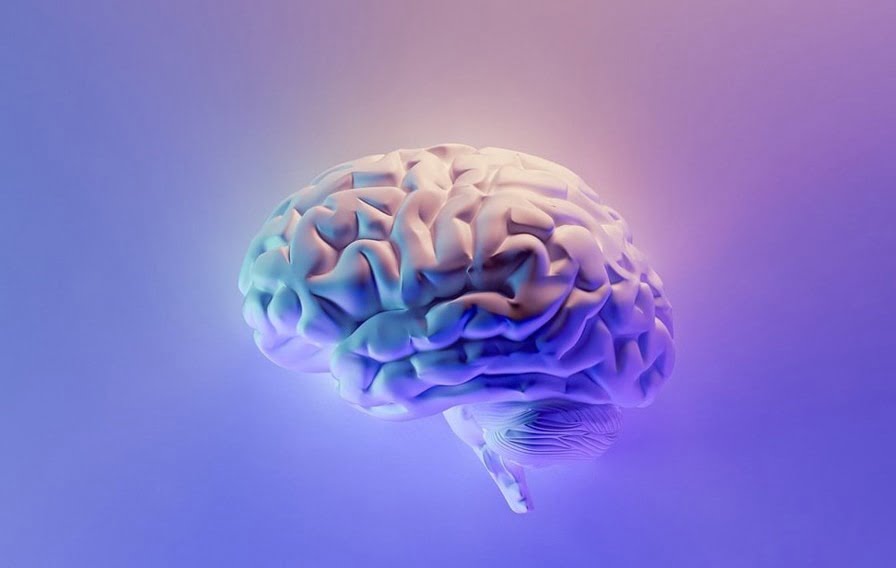Stress comes in all shapes and sizes, everywhere, all the time. But did you know that stress has a direct impact on your weight and appearance? You’re probably familiar with the mechanisms of emotional stress, and its impact on weight is fairly obvious. But stress not only makes us less resistant to external aggression, it also affects our hormonal functioning. It really helps you lose weight (for those who run on adrenaline) or store it (the vast majority of us who feed on cortisol!). Discover how your hormonal life is intimately correlated with stress, and why the establishments we recommend at Luxe Wellness Club offer health cures that combine nutrition, relaxation and physical activity.
Stress and hormones, the best of enemies
Learn to distinguish between good stress and bad stress. Stress is vital. Without stress, you don’t get into action, you don’t react correctly to danger, you don’t know how to protect yourself or those you love. Stress is under the spotlight nowadays, because society has tipped over into permanent, sustained stress, which is almost perceived as being good (those who take it easy don’t have a very good reputation!). And yet, it’s fair to say that stress is at its best when you don’t end the day on your kneecaps! If this is the case, your energy consumption is too high compared to what your body can supply.

Why is it so important to learn how to manage your energy? Because a regular depletion of the body’s resources creates a fertile breeding ground for the development of illnesses such as autoimmune diseases, hormonal imbalances and certain cancers.
The 5 stress hormones and their role.
- ACTH is secreted by the pituitary gland at the base of the brain. Its role is to stimulate the adrenal glands, which in turn release cortisol.
- Cortisol: it is to provide the brain with sufficient energy to prepare us to cope with stress. In particular, it helps regulate blood pressure, cardiovascular function and immune function.
- Adrenalin: prepares the body to respond to stress. Heart rate and breathing quicken, blood pressure rises.
- Oxytocin plays a key role in our social behavior. It is particularly involved in the mother-child relationship and the bond of attachment.
- Vasopressin is also known as the antidiuretic hormone. It helps regulate urinary functions and blood pressure. It plays an important role in managing anxiety.
What does stress actually look like?

Stress is your limbic system’s reaction to an external event. This stress is a threat to your body’s homeostasis (balance). It sends an alarm signal to react. This is when your entire endocrine system mobilizes to fight the threats posed by this stress: release of vasopressin, adrenalin and cortisol.
In the face of “normal” stress, homeostasis is quickly restored once the situation has been managed. In the face of chronic stress, cortisol secretion, for example, is constant and high, slowing down your metabolism and causing it to store energy. It is also often responsible for that permanent feeling of tiredness, insomnia or digestive difficulties.
Act on your intestinal microbiota to reduce stress
The belly, your second brain
The belly holds a treasure: a second brain! While the top one thinks, projects and reflects, the bottom one, populated by billions of neurons, looks after our digestion and acts on its side. Better still, we now know that a secret conversation exists between the two. Your belly, an extraordinary bacterial ecosystem in symbiosis with your body, plays a major role in your emotions. Isn’t this the key to the effectiveness of Chinese medicine as opposed to our own, which is powerless to relieve many ills?

More surprisingly, belly activity is said to influence your personality and choices, making you shy or bold.
Re-balance and nourish intestinal flora to restore hormonal function
Most of your immune system is located in your intestine! The more stressed you are, the poorer your intestinal flora becomes.
A reciprocal communication between your brain and your intestines takes place: if the microbiota is disturbed, your sleep is disturbed, your immune system is weakened and so is your mood. But in the other direction, the famous cortisol we’ve just been talking about also increases intestinal permeability and the risk of intestinal disorders. Indeed, depressed patients often have a flora similar to irritable bowel syndrome!
Remember to rebalance your intestinal flora by eliminating sugars (and sweeteners) from your diet, and boosting your intake of fiber (fruit and vegetables, wholegrain cereals, legumes) and fermented foods. Limit your consumption of red meat and avoid processed foods!

Abdominal breathing to release tension
Watch a child breathe when he’s lying down, and you’ll naturally notice that he breathes through his belly. Abdominal breathing is THE body’s natural, spontaneous way of breathing. But stress, tension and hyperactivity often lead you to forget to breathe properly.
By practicing abdominal breathing, you can focus on your breath and get rid of distracting thoughts. This breathing prevents your heart from racing, oxygenates your brain and allows it to regain control. A new communication will be established between your belly and your brain.
Abdominal breathing also massages your intestines, a highly effective internal massage for intestinal disorders triggered by stress.
Develop your mindfulness!

In spa treatments, be 100% present for this special moment
Mindfulness is not a complicated practice; it simply involves focusing on the present moment. Learn to observe what you find beautiful around you. Learn to feel the softness of that breeze on your skin, the warmth of that sunbeam, the taste of that almond. Take advantage of these unique moments at Luxe Wellness Club to be in the moment.
Sleep when your body tells you to

Stress is vital, but so is sleep. Disturbed sleep rhythms also have an impact on your hormonal functioning. Examples include ghrelin and leptin:
- leptin, produced by your fat cells, induces a feeling of satiety and increases your energy expenditure. Sleep-deprived, its production is greatly reduced
- Ghrelin is synthesized by the stomach and stimulates your appetite. This is what is secreted on waking, along with cortisol. Sleep deprivation increases its production and thus your appetite…
So listen up when Morpheus extends his arms to you!
Meditate…simply
Just meditate, because the constant pressure to perform is exhausting. Meditate in your own way, at your own pace. Getting into the kitchen to prepare meals for people you love, playing a musical instrument, sharing your music with others, walking in the fresh air and feeling the air on you – these are all forms of meditation and your first step towards yourself.

We’ve unearthed some fabulous places for you to refocus on yourself, and start your journey towards a better stress-nutrition balance.
Discover the Homanie estates and retreats at Domaine Canaille in Cassis, celebrate the seasons and the passing of time at thespa ecolodge at Lac du Pecher, or choose the health and energy retreat at Lily of the Valley on the heights of Saint-Tropez.
Book
Take advantage of our expertise in wellness breaks and contact us for a personalized quote.
Call us for France: + 33 1 85 73 22 14 or for Switzerland: +41 22 501 75 16 to discuss your holiday plans.
Text: Copyright Luxe Wellness Club, all rights reserved.







